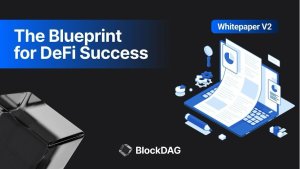The smart way to get $50,000 deposits out of China despite capital control laws
By Kier Yorke, Director of Financial Sales Services at SinusIridum Well, it happened again. China’s stock market plunged, sending more than half a trillion dollars to money heaven. What a surprise, it turns out that a massive credit bubble is actually unsustainable and will eventually burst. Shocker. And just like what happened last year when Chinese […]

By Kier Yorke, Director of Financial Sales Services at SinusIridum
Well, it happened again.
China’s stock market plunged, sending more than half a trillion dollars to money heaven.
What a surprise, it turns out that a massive credit bubble is actually unsustainable and will eventually burst. Shocker.
And just like what happened last year when Chinese stocks tanked, the government is stepping in to centrally plan the stock market recovery. Last year we saw some of the most extraordinary tactics; China’s government jailed short-sellers (i.e. people who bet on stocks declining), and they even encouraged their citizens to BORROW money against their homes to buy stocks.
But no centrally planned bailout is complete without the cherry on top– capital controls. Capital controls are like a bear trap for your savings. They’re what governments impose when they want to hold your money hostage.
In Europe, for example, governments have propped up failing banking systems by imposing withdrawal restrictions, preventing people from taking out too much of their own money. The ultimate example of this was the Cyprus bank freeze back in 2013, when the government locked an entire nation out of their bank accounts.
(This is one of the most important reasons why a critical component of any Plan B is to hold some savings offshore at a well-capitalised foreign bank in a jurisdiction with minimal debt.)
The ongoing war on cash is another form of capital controls.
Governments and economists around the world are increasingly calling for outright bans on physical cash, claiming that only criminals and terrorists need to use cash. In reality, though, banning cash forces people to keep their money inside the banking system.
And in Europe in particular, the banking system is in pitiful condition—highly illiquid, poorly capitalised, and now starting to pass on negative interest rates to customers. Perhaps most commonly, governments impose capital controls to prop up a failing currency, preventing people from taking money out of the country, or conducting any foreign exchange.
This has long been one of the dominant forms of capital controls in China. Last year amid China’s ongoing financial crisis, the government there tightened some forms of capital controls (curiously while loosening others).
Chinese citizens now have strict limitations on the amount of money they can withdraw while traveling abroad, plus restrictions on how much money they can transfer overseas. But for any Chinese citizen with savings right now, it’s pretty obvious what’s happening. And they want to get their money out of the country.
Chinese have an inherent distrust of government. They don’t sing pointless songs about their freedom. Chinese people know that they’re not free. And they know they need to take steps to do something about it before they get wiped out.
But it raises a difficult question– how do you get money out of the country when the government has imposed strict capital controls?
With a little creativity, there’s always a way. Bitcoin has been a popular alternative in China because people can easily cross borders with vast sums of money encrypted inside their mobile phones. But there’s a new tactic that Chinese are using now: domains.
Yes, those domains. As in Internet “.com” domains. The domain business used to be a thriving industry. No doubt, people made huge sums of money in the great “.com land grab” more than a decade ago.
But all the good domain names have been gobbled up, which means that domains can now be very expensive. Facebook bought FB.com for $8.5 million five years ago. 360.com sold for $17 million last year.
It’s not unusual for a domain to sell for millions… and a five or six figure price tag is nothing. So it’s safe to say that most of the easy money has already been made in buying and selling .com domains.
But… Chinese aren’t looking to make money. They’re not buying domains as investments– they’re using domains to TRANSPORT money. Think about it– if you have $50,000 that you really need to get out of China, you can buy an expensive domain today.
Naturally there are no restrictions (for now) on buying a .com domain. So the sale goes through without any problems. But domains are international. Almost anyone in the world can buy or sell a .com domain.
So later, you travel overseas, open a foreign bank account, then sell your domain to someone else. The proceeds of that sale get paid to your new bank account abroad. And, presto! You’ve just moved a lot of money overseas, completely circumventing capital controls.
Naturally there are some costs involved, including some brokerage fees for buying/selling the domain. But for Chinese citizens whose alternative is to let their savings remain trapped within a failing system, they’ll gladly pay a few percent to move their money abroad.
I find this an incredibly clever solution. It’s the digital equivalent of moving money using rare coins and collectibles. A lot of folks may be surprised to find that many rare coins can cost thousands, tens of thousands, even millions of dollars.
You can buy a rare coin and transport vast sums of wealth across a border with nothing more than an old nickel in your pocket. Domains are an even more elegant solution because it doesn’t even exist in the physical world.
It just goes to show that no matter how destructive a government gets, no matter how desperate their measures, there are always ways to defeat them.









